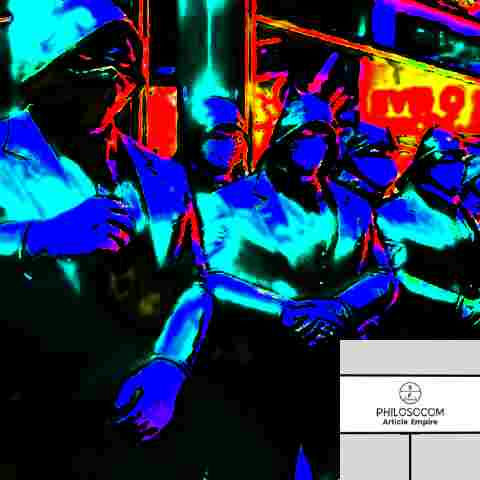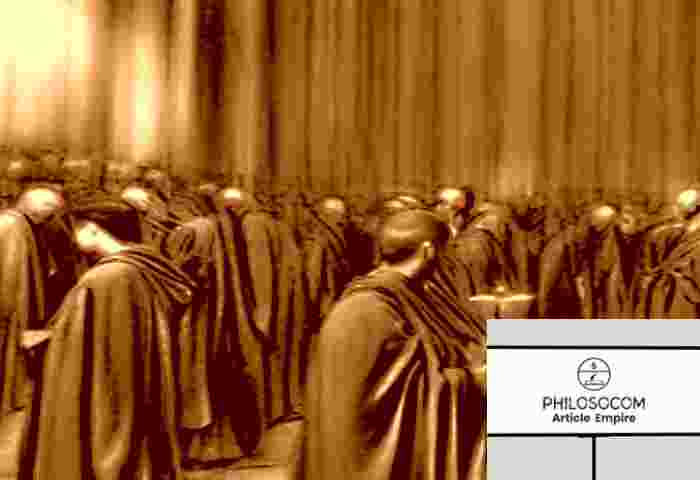The Importance of Fans to Heritage (And the Works of a Hermit Ancestor)
- Oct 25, 2021
- 7 min read
Updated: Jun 15, 2025

Article Synopsis by Mr. O. C. Isaac
The article "The Importance of Fans to Heritage (And the Works of a Hermit Ancestor)" is a thought-provoking reflection on the role of fandom in preserving and amplifying creative work.
It is divided into distinct sections, including the discussion on fandom, tips on nurturing fans, and a personal story about the philosopher's ancestor and his eccentric mentality. This structure balances theory with personal narrative, making the article both informative and emotionally resonant.
The central argument that fans are crucial in preserving and promoting creative legacies is communicated clearly, with the anecdote about the game translation highlighting the power of a passionate fanbase. The author incorporates deeper philosophical musings about the nature of fandom, loyalty, and legacy, elevating the piece beyond a mere opinion article.
The personal story of the author's grandfather serves as a poignant case study that reinforces the article's message, making the theoretical points about the importance of sharing one's work with the public more tangible and relatable.
Overall, this article presents a unique blend of personal narrative and philosophical reflection on the role of followers/fans/supporters in sustaining a creative legacy. Its emotional depth, paired with thoughtful insights into fandom, makes it both engaging and meaningful.
Fans: The Importance of Having Them
In 2012, nine years ago as of this article's original release, a game from an internationally-known series was released to the public. However, it was only released locally, and in Japanese. That meant that, if you did not know Japanese, you had no ability to play that game properly, as everything was in Japanese, with no clue to any international language.
However, in October 2021, a union of fans of that game's series decided to unofficially translate that game to English, and if it weren't for them, that game would've remained in Japanese indefinitely. As a fan of that series myself, I could not expose myself to that game without trying to learn Japanese, which is a very hard language to learn.
In other words, thanks to the fact that this franchise had fans, they were willing, eventually, to join hands, and work on a voluntary project to expose something to the entire English-speaking world.
This is what's so great about having fans or followers
They will be willing to sacrifice some of their time and energy to help your work whether or not you asked them to. By their own will. Because they care about it, and hold it dear to their hearts.
They are, in no way, minions or subordinates (for they are paid), but volunteers who volunteer not out of entitlement but out of love for the original work they have been consuming, following, and thinking about.
Therefore, if you wish to increase the probability of your work being preserved and shared for years to come, you must build a fanbase. They are people who either love you or your work (or both, but not necessarily. You do not have to love Michael Jackson in order to love his music, for example).
Fans are loyal followers who may or may not also pay you for your work. They are the key to turn you from someone who does things as a volunteer, like art or music, into a fully fledged job. They are, in other words, your key to be able to quit that job you hate, and focus on your craft professionally.
How Are Fans Recruited?
They are not recruited. They come by their own desire, and if capable and willing enough, they might also create fan-based work based on the content you have provided. By being inspired by it through their separate work, they can drive traffic to your own work as a result. I guess it is a form of indirect brand awareness.
Fan art, fan games, fan films -- you name it. The same applies to philosophy and philosophers. If people think that your work as a philosopher is worthy enough to be appreciated, they might become your fans, or at least consider it. Once they reach a state of fandom, they could be of use in your own work.
Fans are not necessarily social media followers. Anyone can just click a "follow" button. However, it does not have to be black or white, either. Fandom comes from the heart, from genuine desire. They are the original definition of followers before the first social media platform began (AKA SixDegrees.Com in 1997).
They're something I call "Elite" followers. There is something called silent fans, people who consume your content without necessarily interacting with you. Thus, different content creators, including me, might have fans that we are unaware of due to their lack of interaction.
It isn't something bad at all, because in fandom, everything is voluntary. With no force applied at all by the content maker. Unless there are copyright violations? Anyhow, perhaps they won't do anything at all that's visible. But the fact that they consume your content is something that should not go unappreciated. Perhaps they will contribute one day, perhaps not at all, and perhaps they will chat about your content with other people, thus making them fans, too.
Tip For Preserving Fans
As said, fandom comes from the heart. Don't force your fans to do anything, because otherwise you would alienate them. You can request or ask, but definitely not demand. They might even pay for your work, but they will never be forced by you to do so. A forced volunteer is an oxymoron. You can't force a volunteer the same as you can't force someone to honestly be your fan. I guess you can force people to be your customers but why extort your fans (or anyone for that matter)?
Remember, fans are essentially voluntary admirers. If they believe that they should abandon you, they might as well do so. I wouldn't recommend nagging, either, but I guess it's up to you to decide. I usually nag only when something's urgent... Which is never. Try to not be excessive in your approach to fans, you might lose them unintentionally.
By the way, that's not uncommon as you may think, and even world-renowned figures may have people stop being fans. You are merely a "means" of "transportation", metaphorically-speaking -- producing and distributing content. Once they reach a possible state of progress in their lives, renunciation of loyalty might be possible. It's not necessarily something bad, especially if you've done nothing wrong. More will go, and more will come in their stead. Let Go.
My Late Grandfather -- The Unknown Writer
Finally, I would like to speak about someone who remained unknown all his life, and thus his work remained in the shadows until now. My deceased grandfather, A hermetic ancestor, was also a writer, and I was told he wrote on his computer occasionally. He wrote mostly poems and also translated the works of others to various languages.
He was a very romantic person, as far as I heard. Despite his burning passion, his works have remained in my family in the form of unpublished, printed folders. He was offered to use the internet, but I guess he was too fearful of that new feat of technology. I can only wager he had cyberphobia. You won't find his works online, and if you find others by that name, that's not him. His only public presence is his grave.
I'm using this very personal example to show you what unfortunately happens to the heritage of people who refuse to open themselves to the public. Of people who aren't open to the possibility of fans/followers/customers. If the old, weird Hermit resisted his fear of the internet, he wouldn't have had to think about the expansive possibility of publishing his works in the form of books (assuming he had), and he could've been a known personality today.
His legacy, his "empire", might as well remain a paper collection of folders, kept by a daughter. As a philosopher, I seek regular readers, whom I identify as "fans". Unlike others, I don't seek validation of my ego. I don't need to be validated as much as others. I seek to expand my contribution to this world. That's why the subject of fanbase/fandom matters to me. If I were a private philosopher or someone who would not publish their findings, then I would minimize this notion.
Thus, I would not be surprised if the purpose of this piece is irrelevant to some of you, who are not interested in the power of fandom to help you support and promote whatever legacy you're building.
All you need is to not be afraid to open up through means that could grant you much benefit. Going outside of your comfort zone is imperative to your success. His greatest mistake as a writer was to not go out of his comfort zone.
Conclusion
Fans are the flame that keeps your work alive. They translate obscure games, write fan fiction, and ensure your legacy lives on. Embrace them, for they are a lively, willing bridge between your creation and the world. Nurture this connection, and do not exploit it. and together, you can ensure your work continues to inspire and resonate for years to come, if not long after your own death!
Extra: A Note To A Dead Man
Grandfather, I have learned from you, but I will work to not end up like you did, as a writer! The internet has given me exposure you never had in your entire lifetime, and for that, I'm sorry for the untapped potential that you have refused to realize. You could even have reached far more audiences due to your knowledge of different languages.
But alas, you refused to think about the digital world, even though you were offered it. You wrote on the computer, but refused to use the internet. Your addiction to the love of solitude was your fault.
I'm sorry for your legacy. Ancestor. I'm not sorry for you. I am sorry for your legacy.
I can understand why you were not as liked as a person.






Comments